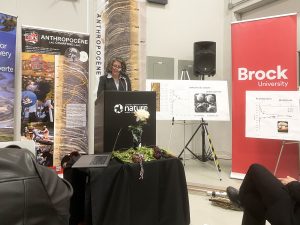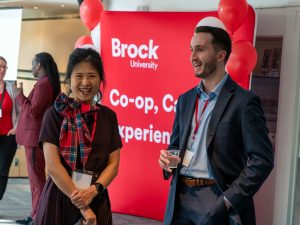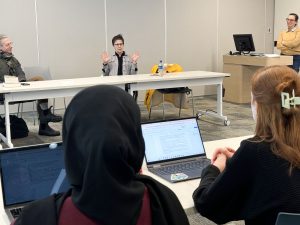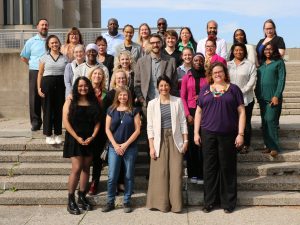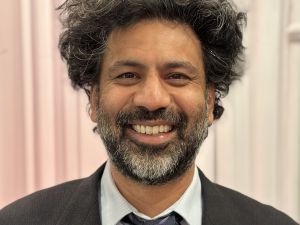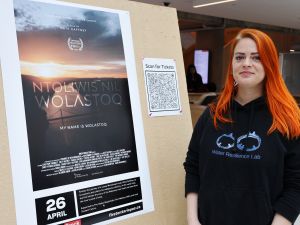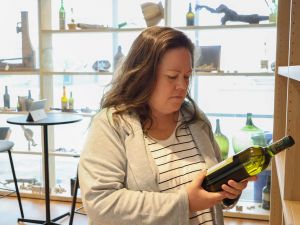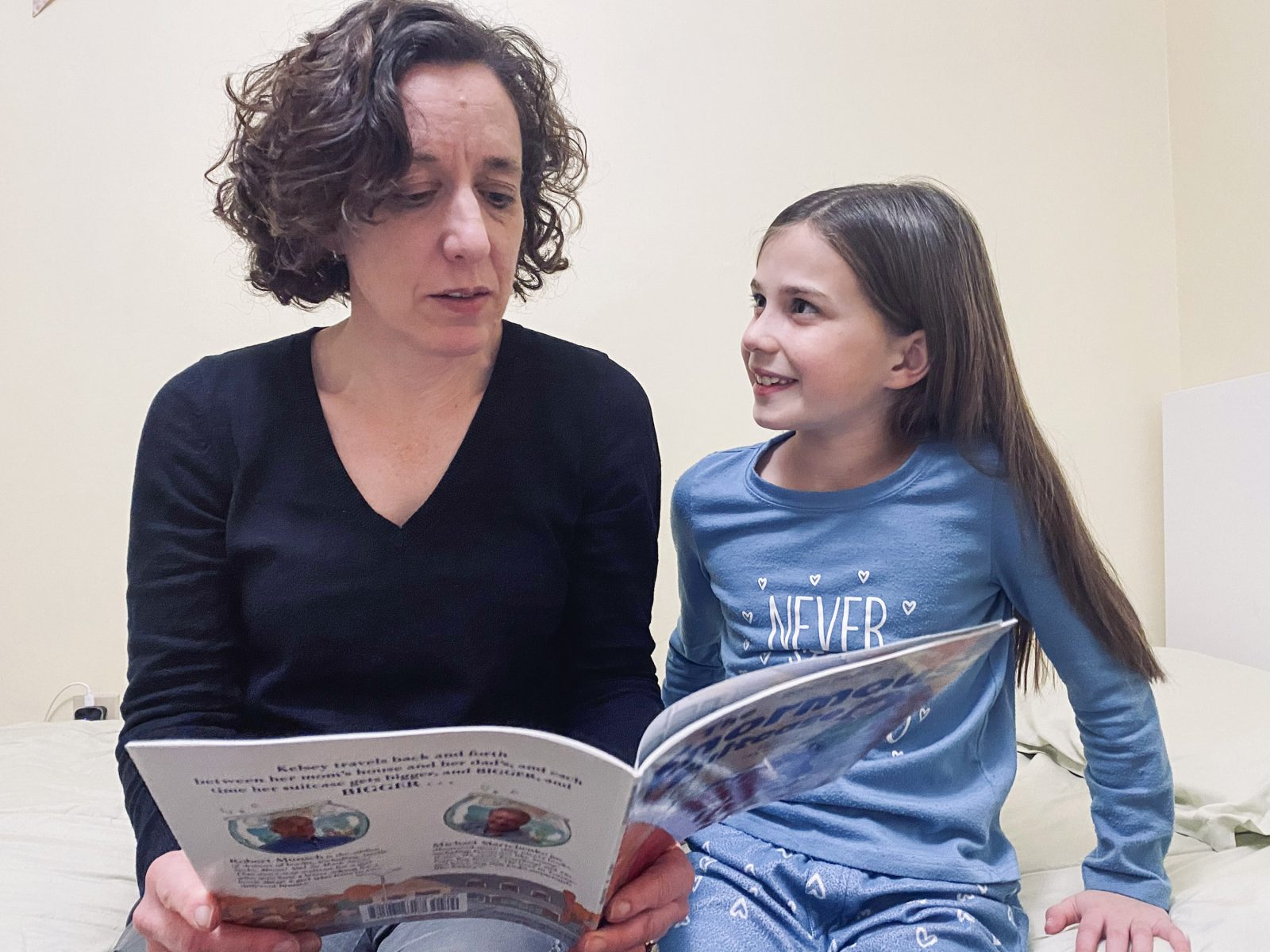 Lynn Dempsey, Associate Professor of Applied Linguistics, reads with her nine-year-old daughter Felicity Dobbin.
Lynn Dempsey, Associate Professor of Applied Linguistics, reads with her nine-year-old daughter Felicity Dobbin.Note: Faculty Focus is a monthly series that highlights faculty whose compelling passions, innovative ideas and various areas of expertise help weave together the fabric of Brock University’s vibrant community. For more from the series, click here.
Lynn Dempsey knows that if she missed a line while reading her children their favourite book, she’d hear about it.
Never missing a beat, her daughters would playfully remind Mom of what the next sentence should in fact be — even before they themselves could read the words on the pages.
The Associate Professor of Applied Linguistics has always been enamoured with how children comprehend — and remember — the silly, funny and educational stories read to them, but becoming a parent herself ignited a new sense of excitement in the Brock University researcher.
Although her children are getting older — Sophie and Felicity are 11 and nine, respectively — Dempsey’s interest in early narrative comprehension has never waned.
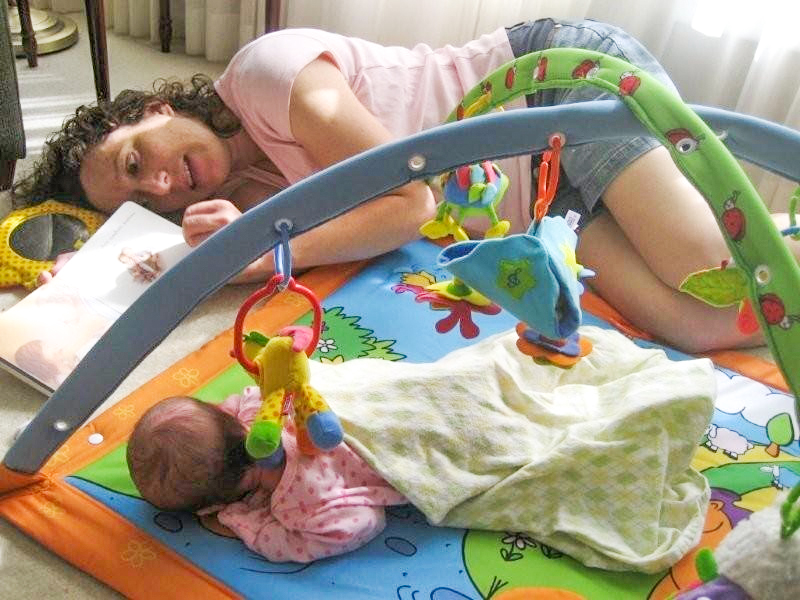
Just days after daughter Sophie was born, Lynn Dempsey, Associate Professor of Applied Linguistics, began reading to her.
Her research focuses on how pre-readers understand the storybooks adults read aloud to them: what they understand of a text, what skills they enlist to aid in that comprehension, and how features of books and the way adults share stories impact their understanding.
“My interest has only grown over time as I’ve experienced reading picture books to my own children,” says Dempsey. “My understanding of the value of book sharing definitely influenced the reading routines I adopted with my kids from early on.”
Dempsey had been studying story comprehension for several years before she and husband Tim started their family, but the first-hand experience gained from reading to her own children added another level to her work.
“I observed what my colleagues and I had recognized: that when children grasp story content, they can retell the story with you, even before they can read themselves,” she says. “When I read the Robert Munsch book We Share Everything! and got to the part where the teacher runs over to solve Amanda and Jeremiah’s dispute, I would pause and my kids would say ‘Now look. This is kindergarten. In kindergarten we share. We share everything!’”
One of the story comprehension measures used in Dempsey’s lab is based on the observation that when children understand stories well, they can fill in some of the elements, even if just a word or two, when they are very young.
While her research focus is all too clear now, it took Dempsey time to establish her career path.
“I was always a good student but didn’t have a firm sense of what I wanted to study or be when I grew up,” she recalls. “But looking back, I can see how various experiences shaped the direction of my studies.”
It was during a placement in a hospital stroke rehab unit while earning her combined Psychology and Social Work degree from McMaster University that Dempsey was first introduced to the field of speech-language pathology.
Her interest in the field continued to grow when she later took a summer job with Community Living, where she worked with four-year-old twins in their home to implement programs developed for them by a speech-language pathologist and occupational therapist.
“Still, by the time my fourth year of undergraduate studies rolled around, I wasn’t sure what I would do next,” Dempsey says. “In truth, I felt a little panicked at the thought of having to leave the university community that I loved.”
A friend provided aptly timed guidance and encouraged Dempsey to apply to graduate programs. She ultimately chose to pursue her master’s degree in Communication Sciences and Disorders from Western University.
During her master’s, Dempsey prepared to become a speech-language pathologist, while also engaging in thesis research.
“To me, this was the best of both worlds in that I was acquiring clinical skills and learning to conduct research at the same time,” she says. “I graduated with my master’s degree wanting to put my clinical skills into practice, but I always intended to return to school to pursue research.”
Dempsey worked as a speech-language pathologist with Peel Preschool Speech and Language Services in Mississauga, where she provided assessment and intervention services.
After working a year in the field, she returned to Western for her doctoral studies in Rehabilitation Sciences with a “renewed sense of the value of the work we were doing in the area of children’s language comprehension,” she says.
Dempsey completed her PhD in 2005 and, later that year, joined Brock’s Department of Applied Linguistics.
“I think my background really serves to illustrate one of the things I love most about Applied Linguistics and that is its interdisciplinary nature,” she says. “Linguistics is informed by and informs many other scientific fields, so there’s a place in Applied Linguistics for people with a whole range of interests and backgrounds.”
Dempsey encouraged students interested in the field to “sample from the diverse array of course offerings.”
“You never know what will most grab your interest,” she says, adding those courses may lead to a number of careers, such as English as a second language teacher, speech-language pathologist, audiologist, editor, translator or communication disorders assistant, among others.



